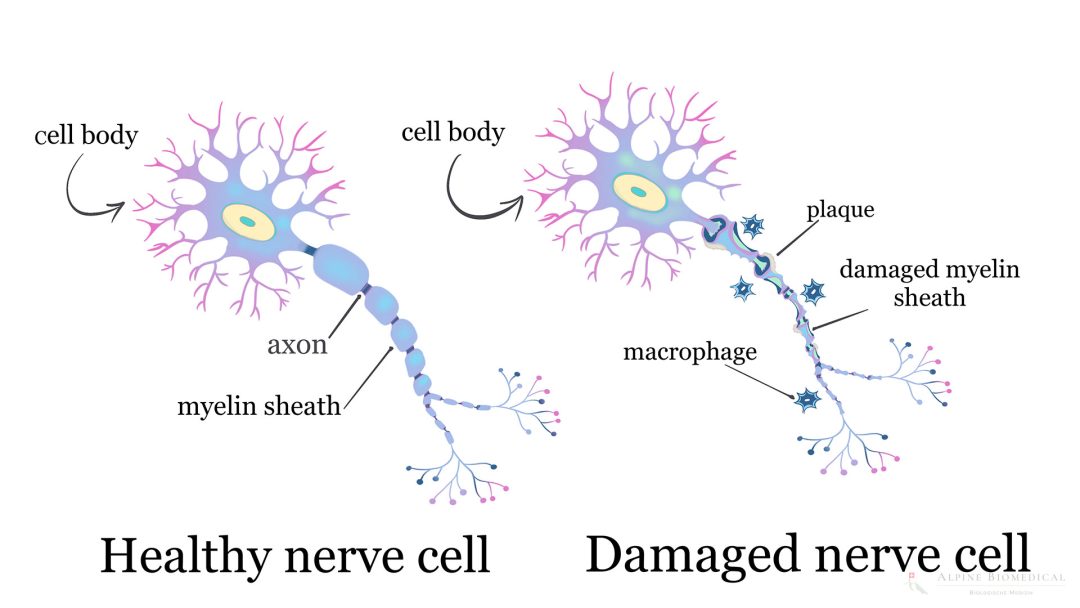Multiple Sclerosis (MS)

Multiple sclerosis (MS) is a chronic autoimmune disease of the central nervous system. It manifests itself through inflammatory and degenerative processes that primarily affect the myelin sheaths of the nerve cells.
An exact cause remains unknown. The role of genetic factors, toxins, but also intestinal health and the blood-brain barrier is being discussed.
Causes of Multiple Sclerosis
The exact cause of MS is not known. It is assumed to be a multifactorial disease. The following causes are discussed:
- Poisoning of the body, e.g. by mercury (amalgam fillings) or smoking
- Leaky gut and disturbed microbiome in the intestine
- Damage to the blood-brain barrier
- Chronic inflammation (silent inflammation), e.g. inflammation of the jaw, FDOJ/NICO
- Infections, e.g. with EBV
- Vitamin D deficiency
- Genetic factors
The exact determination of the causes of the disease is recommended for effective MS therapy.
Symptoms of Multiple Sclerosis
The symptoms are varied and range from visual impairment and sensory disturbances to muscle weakness (paresis) and mental abnormalities. At an advanced stage, sufferers are often confined to a wheelchair and have difficulty controlling their bladder.
Diagnosis and Treatment of Multiple Sclerosis
A thorough medical history, magnetic resonance imaging (MRI), cerebrospinal fluid diagnostics and neurophysiological examinations are crucial for the diagnosis.
Conventional medicine regards MS as a disease that cannot be cured.
Treatment focuses on symptomatic measures such as pain relief. MS typically progresses in inflammatory relapses, which is why relapse therapy with high doses of cortisone is used to alleviate the symptoms. With the help of an immunomodulator (medication against MS relapses), the immune response in the body can be influenced and virtually reprogrammed. The aim is to restore the balance between immunostimulatory and immunosuppressive mechanisms.
Complementary medicine therapies address the body’s toxic load, improve gut health and stabilize the blood-brain barrier.
It is crucial to work in an interdisciplinary way with specialists from different disciplines to ensure full treatment. Hidden jaw inflammation should therefore also be checked and expertly treated by an experienced dentist. Physiotherapy, acupuncture and psychotherapy, for example, also offer helpful support.
One possible option for alleviating an acute MS attack is INUSpheresis (blood purification). If cortisone shock therapy is not effective and there is a risk of severe visual impairment with blindness or arm or leg paralysis, for example, INUSpheresis can be an effective alternative. This special blood wash is intended to remove the harmful components from the blood that contribute to damage to the myelin.
Dr. med. Karsten Ostermann M.A.
In the treatment of Multiple sclerosis, a cause-oriented approach in collaboration with experienced colleagues from different specialist areas is crucial.

Further information
The information listed contains relevant topics and serves to improve understanding.